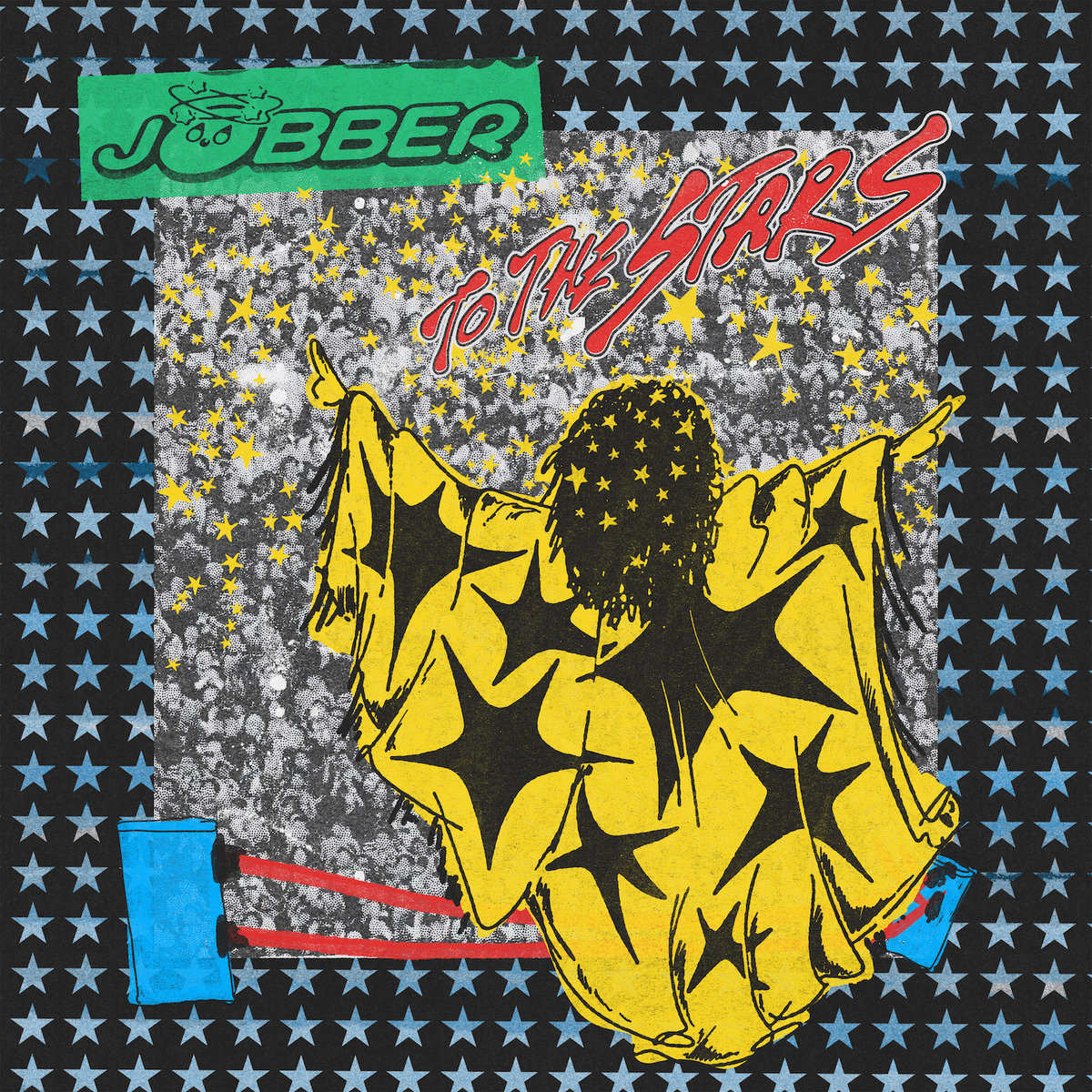DIIV – Frog In Boiling Water | Album Review
/Fantasy Records
I haven’t been doing well, man.
I’m having trouble looking people in the eyes, fretful they might reveal that unmistakable, embarrassing thread of desperation. Every morning, I wake up, and they feel sunken, like ancient craters on the moon. Immediately, they affix themselves to my distractions, working with whatever fits in the palm of my hand. Energy leaks from the pores in my skin like steam from the morning shower — I look at myself in the bathroom mirror and run my fingers numbly over the moguls of my ribcage. A roommate told me to water her Monstera every two weeks while she’s gone, and a month later, it’s still just standing there, forlorn and wilting in the corner. I told her I’d water it, I told her that. What will she think of me when she comes back? That is one raindrop in a torrent I have no protection from. The AirPods go right back in: to another video, another song, another opinion, another memory-clogging flash of synthetic color and sound.
I have to believe that when I agreed to write about DIIV’s fourth record, I was better. That was late February, maybe? Perhaps it’s fitting to soundtrack a routine bout of depression with such overwhelmingly dour music, but the downside is that the murky beauty underneath it refuses to resonate with me. That’s what happens when you live in a negative copy of your present — that, and the pull of homeostasis. A pool of icy water feels fine if you’re just as cold when you enter it.
I don’t know if we’ve ever heard the Brooklyn-based indie stalwarts sound as comprehensively solemn as they sound on their latest record. It’s not surprising. This is the trajectory the band has charted since their 2012 debut Oshin, which saw Zachary Cole Smith and company riding the post-Beach Fossils jangle revival all the way to Peter Parker’s dorm room. Years later, burnout and heroin addiction informed the fragile, misunderstood Is The Is Are, but it still produced a handful of singles in conversation with (or, more likely, in an obligation to) Oshin’s festival-bound buoyancy. Opiate addiction, for many people, is a point of no return, and regardless of whether or not you manage to stabilize, the phantom ache of electrochemistry haunts every good day thereafter, forever in danger of sinking the ship. And yet even 2019’s Deceiver, the start of Smith’s newly sober reality, sneaks in an uplifting turn of melody or two.
In comparison, the water boiling the titular frog is fathoms deep, deep enough to stop light in its tracks. Rhythmically, the pace is sluggish; sonically, the colors run inky and polluted. Much of the inspiration comes from genres celebrated for their sensate qualities, which the band then beats into a bruised, cohesive paste. Lead single “Brown Paper Bag” is classic shoegaze with a clear MBV callback near the end and a visualizer whose downcast one-shot makes for a cheeky double metaphor. “Everyone Out” cribs the jugular thump and plucked harmonics of Sonic Youth’s “Shadow of a Doubt” but not its eroticism; instead, the band can only manage the gray line between optimism and cynicism, and that is about as chipper as they get here.
DIIV has a knack for delivering penultimate album tracks, and “Soul-net,” a song ostensibly about social media, hits hard here. On paper, Smith’s words seem to arrive at an epiphany. “I’m not afraid / I love my pain / I know we can leave this prison,” he offers as a protective mantra. The music says otherwise. There’s real dread pulsing through the song’s twin guitar lines and rotten kick drum, and instead of building toward catharsis, the minor key only clenches tighter, squeezing the life out of his voice. It’s not a clean split, not even close; it’s the familiar grip of addiction in all its forms.
Bandleader Zachary Cole Smith, having long ditched his blonde swoop and beanie for a short brown shag and boxy glasses, inhabits the role of a doomsayer on a street corner, muttering soft curses and hoarse self-lacerations underneath the roar of the band. It’s hard to hear a man pushing forty sounding so existentially crushed. “Remember they told us / the tide lifts our boats up / That ocean is dried out,” he moans on opener “In Amber,” perhaps indirectly recalling the band’s earliest and more innocent effort. The grand theme here is “cultural collapse,” as outlined in Daniel Quinn’s 1996 novel The Story of B, from which the LP gets its name. “If you place [a frog] gently in a pot of tepid water and turn the heat on low,” they explain, “before long, with a smile on its face, it will unresistingly allow itself to be boiled to death.”
Smith alludes constantly to the ingredients of the soup: the threat of war, the raging cultural one, the pleasure suck of the internet, and the ongoing climate emergency, all of which make, in Quinn’s words, “customs and institutions fall into disuse and disrespect, especially among the young, who see that even their elders can no longer make sense of them.” You might get a glimmer of some focus, maybe in the mordant title track or the angsty “Somber the Drums,” but Smith’s lyrics are largely content to soak in the feeling of comfortable misery rather than specify what’s causing it. They circle the drain rather than the point, which is probably a good thing; the abstraction pairs well with the thick murk of the music, which feels more authentic and more succinct than anything Smith might explicate.
Some still believe the notion that our music ought to reflect the times, and they would be satisfied by the nebulous devastation swirling throughout Frog in Boiling Water. However, I question how effective that archaic approach can continue to be. We can be galvanized by music, enough to write about it. For the overwhelming rest of us, it’s part of the thing, not the whole thing. It tells us who we are and how we relate to everybody else; it gets us through long plane trips and treadmill sessions; it backgrounds our trips to the grocery store, the barbershop, and the local tavern. It’s there when we’re high and when we’re low, when we’re feeling everything and nothing at all, an unerring current running parallel to the anfractuousness of our lives. It is every sound at once, and it never stops, not even for a second.
It’s just another album. What feels more radical is absolute silence, the needle reaching the inner groove, the cease of the thrum that finally reveals how far we’ve grown from each other, how hot the water has become. But then, who can bear to feel the burn? And thus, we are cursed. The AirPods go right back in.
Rob Moura is from Seattle. He covers local music as the editor for WASH Magazine and writes for The Stranger, Earshot Jazz, and ARCADE, among others. Say hi to him on Instagram and/or follow his Substack. He also plays quiet acoustic folk as Armour; he’d love it if you gave his new album a spin.















